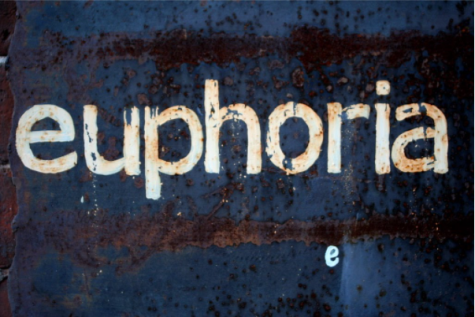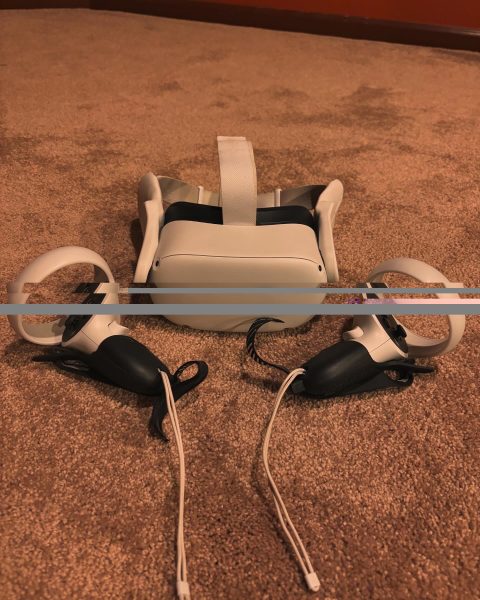Does HBO’s Euphoria Glamorize Teen Drug Use?
Drugs, addiction, and the demons that battle in the minds of teenagers. Euphoria is an HBO Max television show that tackles all of these topics. Aired in June of 2019, this show grabbed the attention of approximately six million people worldwide. The plot of the show is loosely based on an Israeli drama with the same name. Euphoria is known for discussing sensitive subject matters, and this is especially true of one of their most recent episodes. Episode five of their second season first aired on Jan. 30, 2022. With over 3.2 million viewers and nearly 100 percent viewership this season, episode five became Euphoria’s second most-watched episode to date. Although each episode dabbles with different ideas such as addiction, mental health, and family issues, this episode specifically follows the main character, Rue Bennett, and her battle with addiction and mental health. This episode allows viewers to follow Rue as she deals with the repercussions of her opiate addiction, showcasing the reality of drug use, something Euphoria is often criticized for hiding. The episode opens with a frantic Rue violently tearing her home apart in a desperate search for drugs that have already been disposed of by her friends and family. With her loved ones attempting to help her through her drug addiction, she becomes overwhelmed with the fact that in order to get help, she needs to go back to rehab. This episode not only shows Rue struggling with her addiction but also her family’s struggles as well, which is a point of view that is often left out of media discussing addiction.
With the heavy plot points of mental health, family issues, and addiction, HBO began adding mental health disclaimers before the beginning of an episode. The vice president of brand and product marketing at HBO, Jason Mulderig, described these disclaimers as “not saying ‘viewer discretion is advised.” Instead, they are saying “viewer conversation is encouraged.” Instead of turning viewers away because of the heavy content, a conversation over difficult subjects mentioned in Euphoria is not only important to the writers and production team of Euphoria, but also to HBO as a whole. Despite the efforts of HBO being transparent about the show and its sensitive topics, many media outlets, as well as viewers worldwide, are concerned by what they see as the normalization and glorification of mental health issues, morally gray behaviors, and recreational drug use.
The New York Post published an article the day after the airing of episode five discussing Euphoria star, Zendaya, defending the show after D.A.R.E made a statement claiming the show “glorifies drugs”. Drug Abuse Resistance Education also known as D.A.R.E., an education program that brings awareness to drug abuse and gang violence says that Euphoria inherently normalizes teen drug abuse by depicting it as a “typical extracurricular activity among high schoolers”. This can be seen during the party scenes where characters can be seen partaking in drug and alcohol use and seemingly enjoying themselves with no obvious repercussions of their actions. As a program, they feel that this show depicts such destructive behaviors by promoting them and that HBO does not recognize the potential consequences of their actions by showing teenagers and young adults that this behavior is normal. Zendaya said, “our show is in no way a moral tale to teach people how to live their life or what they should be doing. If anything, the feeling behind Euphoria… is to hopefully help people feel a little bit less alone in their experience and their pain.”

There is no doubt that this show has some kind of effect on teenagers and young adults tuning in weekly. Pennridge senior, Ryann Pinter, disagrees with the idea that Euphoria glorifies addiction. “It shows you the dark side of addiction, but it does glorify the act of doing drugs, partying, drinking,” Pinter notes. She also mentions that despite the romanticization of drug use and partying, the aftermath is always shown which usually depicts the negative moments in the show saying, “when you have fun like that, it leads to worse things.” An interview with Lauren Dominguez revealed that she also disagrees with the glorification of addiction saying that, “(Euphoria) shows the recovery process and how hard the process is.” Throughout the show’s portrayal of Rue’s addiction, “it shows that recovery isn’t linear.”
Unlike D.A.R.E., Ryann Pinter would not change anything about the show’s depiction of addiction and brings up the idea that “(Euphoria) shows obvious things about addiction, and also the not so obvious”. Dominguez, on the other hand, would change the perception of alcohol and smoking, both things she feels are being depicted as recreational and a means of having fun. “I can see how the parties would make it seem like the show is glorifying drugs,” Dominguez says. “Since they focus so much on the bad parts of Rue’s problems… they should also focus on the bad side with drinking and smoking.” When asked about the relatability of the show itself, Dominguez believes it is relatable because she has “seen a lot of people relating to each of the characters whether it be through mental issues, drug addictions, validation, body issues, abusive relationships, etc.” Ryann Pinter also mentioned a similar idea that Euphoria is relatable to an extent because many teenagers in today’ society face some sort of addiction, but it also “prevents it from becoming relatable to others” by highlighting the dangers of such indulgences.
Director, writer, and producer, Sam Levinson, a former drug addict who is now 14 years clean, remembers spending time in and out of hospitals and halfway houses which is an experience he now draws inspiration from when writing about similar topics in Euphoria. The way Levinson has been writing the show avoids shying away from the harsh reality of addiction and mental health saying, “any time you put anything on the screen, you run the risk of glamorizing it just by the nature of it being on screen.” Levinson wants the production team to be mindful of how a young audience may respond, but also recognizes that the show isn’t intended to be a “cure for anything”. With this in mind, the show is rated TV-MA meaning it is recommended for a mature audience over the age of 16. The show also provides a website full of resources such as The Trevor Project, Partnership to End Addiction, Trans Lifeline, Planned Parenthood, and more as well as Crisis Text Line provided at the end credits of a few sporadic episodes. Levinson disputes D.A.R.E.’s claim, retorting that these heavy topics need to be seen and that he has every intention of portraying such matters in an authentic way. Viewership is encouraged to have open conversations on sensitive topics that make up Euphoria, but the inevitable glamorization of those same topics that come with bringing them to television, who knows how this will influence teenagers?
Odi Dibor. Grade 12. Interests/hobbies include Executive Council, Red Cross Club, Mini-THON, Key Club, National Honors Society, playing tennis, traveling,...




